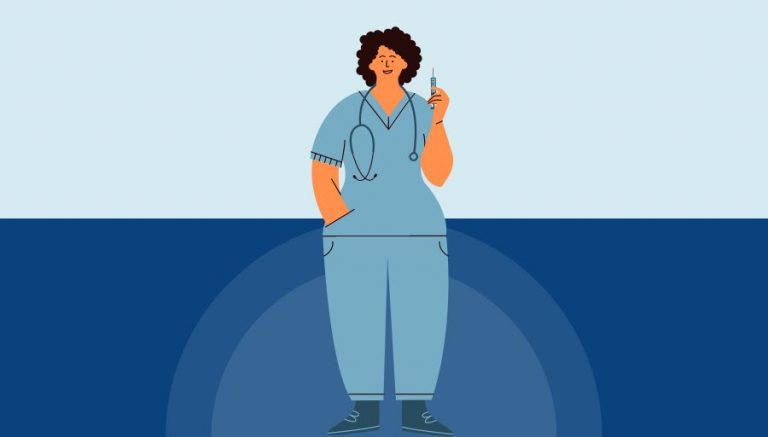How To Use CPT Code 87635
CPT 87635 is a code used for the detection of the SARS-CoV-2 virus through nucleic acid testing. This article will cover the description, procedure, qualifying circumstances, usage, documentation requirements, billing guidelines, historical information, similar codes, and examples of CPT 87635.
1. What is CPT 87635?
CPT 87635 is a code used to identify the procedure for detecting the presence of the severe acute respiratory syndrome coronavirus 2 (SARS-CoV-2) virus, which causes COVID-19, through nucleic acid testing. This code is specifically used for the amplified probe technique, which involves the amplification of nucleic acid sequences to detect the presence of the virus in a patient’s specimen.
2. 87635 CPT code description
The official description of CPT code 87635 is: “Infectious agent detection by nucleic acid (DNA or RNA); severe acute respiratory syndrome coronavirus 2 (SARS-CoV-2) (coronavirus disease [COVID-19]), amplified probe technique.”
3. Procedure
The 87635 procedure involves the following steps:
- Collection of a specimen from the patient, such as a throat swab, sputum, or respiratory secretions.
- Processing of the specimen in the laboratory.
- Amplification of the nucleic acid sequences using techniques such as polymerase chain reaction (PCR).
- Assessment of the presence of the amplified nucleic acid sequences using a nucleic acid probe through hybridization.
- Visualization of the hybridization product using a labeled probe, such as a radioactive or chemical tag.
4. Qualifying circumstances
Patients who are eligible to receive CPT code 87635 services are those who exhibit symptoms of a respiratory infection and are suspected of having COVID-19. Clinicians may order this test to diagnose infection with the SARS-CoV-2 virus in such patients. The test is not limited to a specific condition but is primarily used for the detection of the virus causing COVID-19.
5. When to use CPT code 87635
It is appropriate to bill the 87635 CPT code when a laboratory performs the amplified nucleic acid probe technique to detect the presence of the SARS-CoV-2 virus in a patient’s specimen. This code should be used for patients with symptoms of a respiratory infection who are suspected of having COVID-19 and require testing for the presence of the virus.
6. Documentation requirements
To support a claim for CPT 87635, the following information needs to be documented:
- Patient’s demographic information, including name, date of birth, and insurance information.
- Relevant clinical history and symptoms of the patient.
- Indication for the test, such as suspected COVID-19 infection.
- Details of the specimen collection, including the type of specimen and collection method.
- Results of the nucleic acid amplification and probe hybridization, including any relevant quantitative or qualitative data.
- Interpretation of the test results by a qualified healthcare professional.
7. Billing guidelines
When billing for CPT code 87635, it is essential to follow the appropriate guidelines and rules. These include:
- Ensuring that the patient meets the qualifying circumstances for the test.
- Documenting all necessary information to support the claim, as outlined in the documentation requirements section.
- Not billing separately for reverse transcription, as it is included in the service.
- Using codes 86328 or 86769 for SARS-CoV-2 antibody testing, as these are separate from nucleic acid testing.
- Utilizing CMS-created codes U0001 or U0002 for laboratory testing of the SARS-CoV-2 virus, depending on the specific test used.
8. Historical information
CPT 87635 was added to the Current Procedural Terminology system on March 13, 2020. There have been no updates to the code since its addition.
9. Similar codes to CPT 87635
Five similar codes to CPT 87635 and how they differentiate are:
- CPT 87471: This code is used for the detection of other infectious agents by nucleic acid testing, not specific to SARS-CoV-2.
- CPT 86328: This code is for a single-step immunoassay for SARS-CoV-2 antibody testing, not nucleic acid testing.
- CPT 86769: This code is for a multistep method for SARS-CoV-2 antibody testing, not nucleic acid testing.
- U0001: This CMS-created code is specifically for the CDC-developed SARS-CoV-2 testing kit.
- U0002: This CMS-created code is for SARS-CoV-2 tests developed by other laboratories.
10. Examples
Here are 10 detailed examples of CPT code 87635 procedures:
- A patient presents with fever, cough, and shortness of breath, and the clinician suspects COVID-19. The clinician orders a nucleic acid test using the amplified probe technique, and the laboratory performs the test as described in the procedure section.
- A patient with a recent history of international travel develops respiratory symptoms and is tested for SARS-CoV-2 using the amplified probe technique.
- A healthcare worker with known exposure to a COVID-19 positive patient develops respiratory symptoms and undergoes testing using CPT code 87635.
- A patient in a long-term care facility with a recent outbreak of COVID-19 cases presents with respiratory symptoms and is tested using the amplified probe technique.
- A patient with a weakened immune system presents with respiratory symptoms, and the clinician orders a nucleic acid test using the amplified probe technique to rule out COVID-19.
- A patient with a history of close contact with a confirmed COVID-19 case develops respiratory symptoms and undergoes testing using CPT code 87635.
- A patient with a pre-existing respiratory condition presents with worsening symptoms, and the clinician orders a nucleic acid test using the amplified probe technique to determine if COVID-19 is the cause.
- A patient who attended a large gathering where COVID-19 cases were later reported develops respiratory symptoms and is tested using the amplified probe technique.
- A patient with no known exposure to COVID-19 but presents with severe respiratory symptoms undergoes testing using CPT code 87635 to rule out the possibility of infection.
- A patient who previously tested positive for COVID-19 and completed isolation presents with new respiratory symptoms, and the clinician orders a nucleic acid test using the amplified probe technique to determine if the patient has been re-infected.


